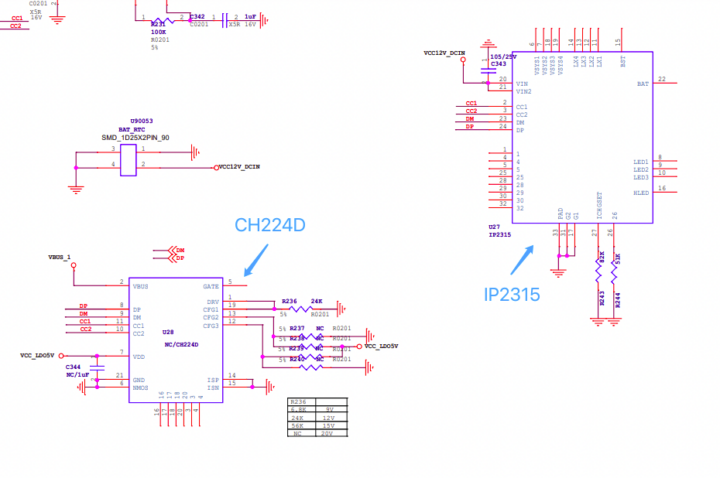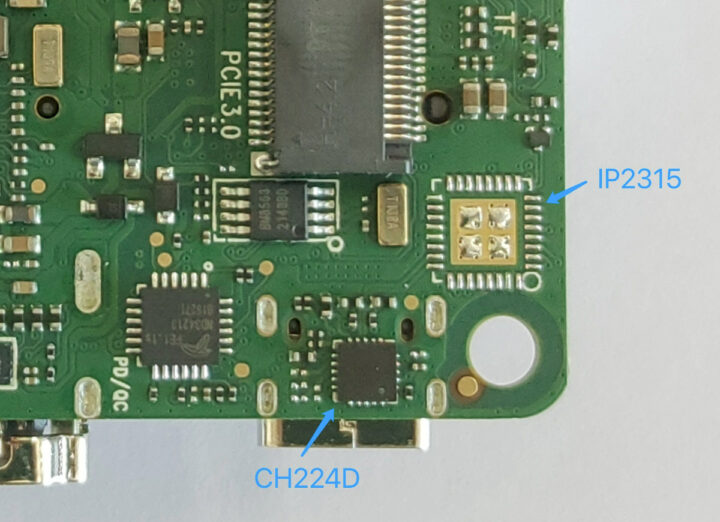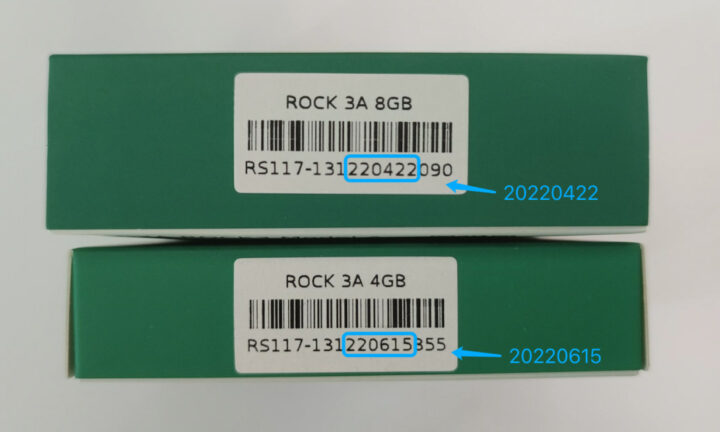Chips may suddenly disappear from the supply chain or get really expensive due to the recurring supply shortage, companies are now designing their PCBs to support multiple chips either selecting drop-in replacements or creating multiple footprints to cater to at least one alternative part. That means one PCB and multiple bill-of-materials are needed to be more resilient to any supply disruption.
Radxa did that on the ROCK 3A board for the USB PD circuitry with the ability to use either Injoinic IP2315 or WCH CH224D IC. Those are not pin-to-pin compatible chips, and two circuitry were made for the board requiring two BoMs as it’s not just possible to only replace IP2315 by CH224D.
 But this information did not get to the inventory manager, and once IP2315 was out of stock, he/she believed it would be possible to simply replace IP2315 with CH224D. The unlucky part is that the factory did not notice/report the mismatch, and the board still passed QC during mass production using a 5V power adapter, although no voltage higher than 5V could be negotiated. This resulted in the company shipping Rock 3A boards with the wrong circuitry between April 22, 2022 and June 15, 2022, or nearly 2 months.
But this information did not get to the inventory manager, and once IP2315 was out of stock, he/she believed it would be possible to simply replace IP2315 with CH224D. The unlucky part is that the factory did not notice/report the mismatch, and the board still passed QC during mass production using a 5V power adapter, although no voltage higher than 5V could be negotiated. This resulted in the company shipping Rock 3A boards with the wrong circuitry between April 22, 2022 and June 15, 2022, or nearly 2 months.
Since the board works fine under light loads or with few peripherals connected, it’s quite possible many users did not notice. But the board is more prone to random reboots under heavy loads or when multiple peripherals are connected to the board which increases the power consumption. But wait… How do I know all that? That’s because Radxa did the right thing and publicly announced the issue on its forum, apologized to its users, and offered resolutions we’ll discuss below.
You can check the manufacturing date of your board on the box as shown above.
Radxa also provides three potential resolutions to the issue:
- Replace or refund the affected board through the distributor where the board(s) was/were purchased
- Provide a free IP2315 IC for DIY users to self-repair (Advanced users only)
- Provide a free 12V/3A USB power adapter
We’ve recently been complaining about the (cursed) 12V-only USB power adapters provided with some mini PCs and a Raspberry Pi 4 laptop, but it turns out they may have their use…

Radxa also took measures to prevent such incidents to occur in the future:
- Addition of an ADC voltage test case that requires a voltage greater than 9V to be detected for it to pass QC.
- Production must follow the BOM strictly, and for any change of components, the ERP administrator must be notified and provide a new and correct BOM.
- The factory has been informed that If there is a mismatch between the BOM and the parts, they must check with our engineers…
While there have been some mistakes along the way and lessons learned, this particular mass production mishap would not have happened without the current supply shortage that increased the complexity of the design, sourcing, and manufacturing.

Jean-Luc started CNX Software in 2010 as a part-time endeavor, before quitting his job as a software engineering manager, and starting to write daily news, and reviews full time later in 2011.
Support CNX Software! Donate via cryptocurrencies, become a Patron on Patreon, or purchase goods on Amazon or Aliexpress





